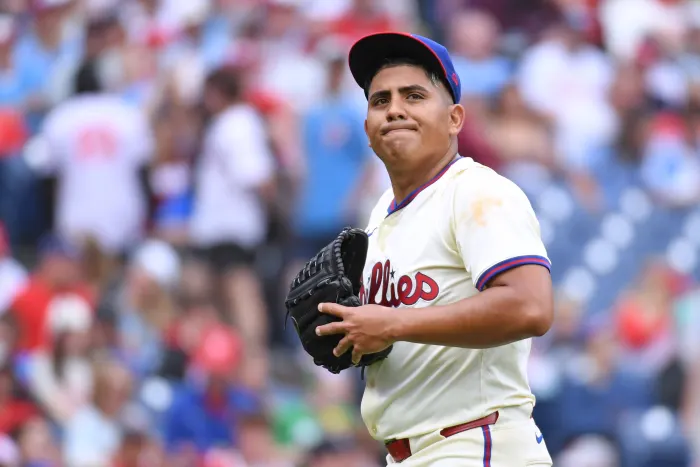Philadelphia Eagles quarterback Jalen Hurts recently addressed widespread speculation surrounding his absence from the team’s White House visit following their victory in Super Bowl LIX. While many fans and commentators speculated that the reason for skipping the event was political, Hurts has since clarified that his decision to not attend was due to scheduling conflicts, and nothing more.
The Eagles visited the White House on April 28, 2025, in celebration of their championship win. While most of the team and coaching staff attended the ceremony hosted by President Joe Biden, a few notable players were missing from the occasion, including Hurts, wide receiver A.J. Brown, and DeVonta Smith. Their absences immediately raised questions, especially given the political undertones that can sometimes accompany high-profile White House visits by professional sports teams.
When asked about his absence, Hurts responded succinctly: “I wasn’t available. I don’t think that’s pertinent. Everyone who went, and was available, they seemed to enjoy themselves.” His brief but firm answer seemed aimed at shutting down further speculation that his absence was tied to political views or protests. Hurts emphasized that it was purely a matter of scheduling and not a reflection of his opinions about the event or the current administration.
Adding to the clarification, A.J. Brown also addressed the issue, stating that he missed the White House trip due to a family matter. He was equally adamant that his absence was not political in nature, emphasizing that people should not read too much into it. DeVonta Smith did not publicly comment, but the messaging from team leaders like Hurts and Brown appeared coordinated to dispel rumors and avoid distracting from the team’s accomplishments.
Interestingly, despite not attending the White House celebration, Jalen Hurts was seen at several other public events around the same time. Most notably, he attended the Met Gala on May 5 with his wife, Bryonna “Bry” Rivera Burrows. This prompted some observers to question the nature of his “scheduling conflict,” but Hurts did not provide further details, preferring to maintain privacy about his personal and professional obligations.
The controversy reflects the often-heightened scrutiny athletes face in the public eye, especially when their actions—or inactions—are interpreted through a political lens. In recent years, several athletes and teams have chosen to skip White House visits, sometimes as a form of protest. However, Hurts and Brown’s statements suggest that this situation should not be viewed in that context.
Ultimately, Hurts remains focused on his role as a team leader and quarterback for the Eagles. His decision to sidestep the White House visit, and the minimal explanation provided, seems in line with his typically composed and businesslike demeanor. Rather than fuel any unnecessary drama, he appears determined to keep attention on the field and the Eagles’ future goals. Whether fans agree with his choice or not, Hurts has made it clear that his priorities are rooted in his responsibilities and schedule, not in political signaling.




